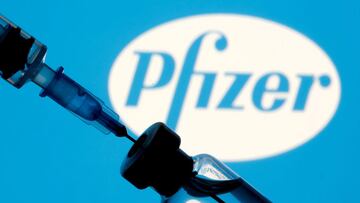Can you mix covid-19 vaccines? Is it safe?
A lost vaccination card or simple mix-up at a pharmacy… there are a few ways you could end up with two doses of two different vaccines, but should you be concerned?


In January, the Center for Disease Control and Prevention released guidance on the mixing of covid-19 vaccines. The health authority stated that the best option is for patients to receive two doses of the same vaccine, even if they have to wait more than six weeks between shots.
However, the guidance also states that “If two doses of different mRNA COVID-19 vaccine products are administered in these situations (or inadvertently), no additional doses of either product are recommended at this time,” and that “such persons are considered fully vaccinated against COVID-19 ≥2 weeks after receipt of the second dose of an mRNA vaccine.” The mRNA vaccines available in the US were developed Pfizer & BioNTech and Moderna.
Researchers examine the possible benefits of receiving doses of different vaccines.
According to scientists at Oxford University, depending on the vaccines administered, there could be benefits from receiving two different vaccines. In February, the researchers began a trial examining the immune response in individuals who had received two different vaccines.
Earlier this year, both the CEOs of Pfizer and Modern signaled that a booster dose to their covid-19 vaccine might be needed later this year or early next. The Oxford study aims to understand if using a different vaccine -- Oxford-AstraZeneca and Pfizer & BioNTech -- could recreate the same sort of immune response that a new “booster” shot would. In a press release on the experiment, the research team said they intend to “evaluate the feasibility of using a different vaccine for the initial ‘prime’ vaccination to the follow-up ‘booster’ vaccination.”
As of 2 June, the Oxford-AstraZeneca vaccine has not been approved for use in the US, and if the country chooses to deploy this method, more research will is needed.
What are the possible benefits of this approach?
From an economic perspective, if the results are positive, a lot of money could be saved. Developing a booster shot would take critical investments in research and development. If countries can begin to administer the vaccines they already have available as a booster, the endeavor to protect their population will be much more cost-effective.
The Oxford study examined the relationship between immune responses when the Pfizer and Oxford-AstraZenaca vaccines are administered. The trial included 800 individuals, which were divided into two groups. The first group received "a first dose of the Oxford-AstraZeneca vaccine followed by boosting with either the Pfizer vaccine." The second received the same vaccines but in reverse order.
What have the results of the study shown so far?
Related stories
Preliminary results on the trial released in late May, show that 600 of the 800 total participants benefited from the combined dosages. The news was released as “several European countries are already recommending that some or all people who were given a first dose” of the Oxford-AstraZeneca vaccine get another brand for their second dose.
Another trial carried out by the Spanish CombivacS enrolled over 600 people who had received the Oxford-AstraZeneca vaccine and then were given a dose of Pfizer to see how their immune system responds. The research team reported that the immune systems of those who received a Pfizer dose as a booster had their immune systems “jolted” and that many “participants began to produce much higher levels of antibodies than they did before, and these antibodies were able to recognize and inactivate SARS-CoV-2 in laboratory tests.”
- Vaccination
- Virology
- Outbreak
- Infectious diseases
- University
- Microbiology
- Diseases
- Preventive medicine
- Higher education
- Medicine
- Pfizer
- Enterprises
- Education system
- Economy
- Education
- Industry
- Biology
- Health
- Life sciences
- AstraZeneca
- Universidad Oxford
- Science
- Coronavirus Covid-19
- Pharmaceutical industry
- Pharmacy
- Pandemic
- Coronavirus